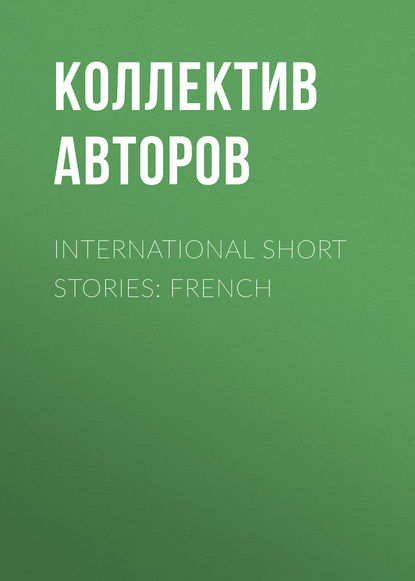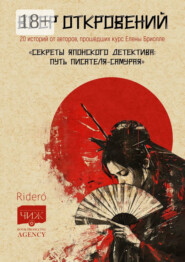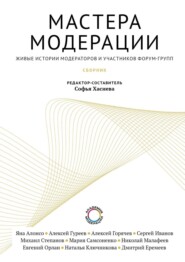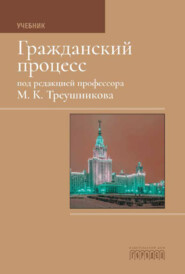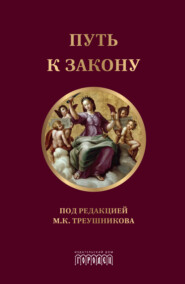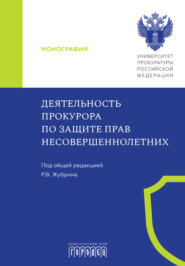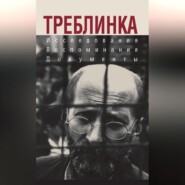По всем вопросам обращайтесь на: info@litportal.ru
(©) 2003-2024.
✖
International Short Stories: French
Настройки чтения
Размер шрифта
Высота строк
Поля
"I have my stiletto."
"But can you run as fast as I can?"
He gave a leap and put himself out of reach.
"You are not the son of Mateo Falcone! Will you then let me be captured before your house?"
The child appeared moved.
"What will you give me if I hide you?" said he, coming nearer.
The outlaw felt in a leather pocket that hung from his belt, and took out a five-franc piece, which he had doubtless saved to buy ammunition with. Fortunato smiled at the sight of the silver piece; he snatched it, and said to Gianetto:
"Fear nothing."
Immediately he made a great hole in a pile of hay that was near the house. Gianetto crouched down in it and the child covered him in such a way that he could breathe without it being possible to suspect that the hay concealed a man. He bethought himself further, and, with the subtlety of a tolerably ingenious savage, placed a cat and her kittens on the pile, that it might not appear to have been recently disturbed. Then, noticing the traces of blood on the path near the house, he covered them carefully with dust, and, that done, he again stretched himself out in the sun with the greatest tranquillity.
A few moments afterwards, six men in brown uniforms with yellow collars, and commanded by an Adjutant, were before Mateo's door. This Adjutant was a distant relative of Falcone's. (In Corsica the degrees of relationship are followed much further than elsewhere.) His name was Tiodoro Gamba; he was an active man, much dreaded by the outlaws, several of whom he had already entrapped.
"Good day, little cousin," said he, approaching Fortunato; "how tall you have grown. Have you seen a man go past here just now?"
"Oh! I am not yet so tall as you, my cousin," replied the child with a simple air.
"You soon will be. But haven't you seen a man go by here, tell me?"
"If I have seen a man go by?"
"Yes, a man with a pointed hat of black velvet, and a vest embroidered with red and yellow."
"A man with a pointed hat, and a vest embroidered with red and yellow?"
"Yes, answer quickly, and don't repeat my questions?"
"This morning the curé passed before our door on his horse, Piero. He asked me how papa was, and I answered him – "
"Ah, you little scoundrel, you are playing sly! Tell me quickly which way Gianetto went? We are looking for him, and I am sure he took this path."
"Who knows?"
"Who knows? It is I know that you have seen him."
"Can any one see who passes when they are asleep?"
"You were not asleep, rascal; the shooting woke you up."
"Then you believe, cousin, that your guns make so much noise? My father's carbine has the advantage of them."
"The devil take you, you cursed little scapegrace! I am certain that you have seen Gianetto. Perhaps, even, you have hidden him. Come, comrades, go into the house and see if our man is there. He could only go on one foot, and the knave has too much good sense to try to reach the mâquis limping like that. Moreover, the bloody tracks stop here."
"And what will papa say?" asked Fortunato with a sneer; "what will he say if he knows that his house has been entered while he was away?"
"You rascal!" said the Adjutant, taking him by the ear, "do you know that it only remains for me to make you change your tone? Perhaps you will speak differently after I have given you twenty blows with the flat of my sword."
Fortunato continued to sneer.
"My father is Mateo Falcone," said he with emphasis.
"You little scamp, you know very well that I can carry you off to Corte or to Bastia. I will make you lie in a dungeon, on straw, with your feet in shackles, and I will have you guillotined if you don't tell me where Gianetto is."
The child burst out laughing at this ridiculous menace. He repeated:
"My father is Mateo Falcone."
"Adjutant," said one of the soldiers in a low voice, "let us have no quarrels with Mateo."
Gamba appeared evidently embarrassed. He spoke in an undertone with the soldiers who had already visited the house. This was not a very long operation, for the cabin of a Corsican consists only of a single square room, furnished with a table, some benches, chests, housekeeping utensils and those of the chase. In the meantime, little Fortunato petted his cat and seemed to take a wicked enjoyment in the confusion of the soldiers and of his cousin.
One of the men approached the pile of hay. He saw the cat, and gave the pile a careless thrust with his bayonet, shrugging his shoulders as if he felt that his precaution was ridiculous. Nothing moved; the boy's face betrayed not the slightest emotion.
The Adjutant and his troop were cursing their luck. Already they were looking in the direction of the plain, as if disposed to return by the way they had come, when their chief, convinced that menaces would produce no impression on Falcone's son, determined to make a last effort, and try the effect of caresses and presents.
"My little cousin," said he, "you are a very wide-awake little fellow. You will get along. But you are playing a naughty game with me; and if I wasn't afraid of making trouble for my cousin, Mateo, the devil take me! but I would carry you off with me."
"Bah!"
"But when my cousin comes back I shall tell him about this, and he will whip you till the blood comes for having told such lies."
"You don't say so!"
"You will see. But hold on! – be a good boy and I will give you something."
"Cousin, let me give you some advice: if you wait much longer Gianetto will be in the mâquis and it will take a smarter man than you to follow him."
The Adjutant took from his pocket a silver watch worth about ten crowns, and noticing that Fortunato's eyes sparkled at the sight of it, said, holding the watch by the end; of its steel chain:
"Rascal! you would like to have such a watch as that hung around your neck, wouldn't you, and to walk in the streets of Porto-Vecchio proud as a peacock? People would ask you what time it was, and you would say: 'Look at my watch.'"
"When I am grown up, my uncle, the Caporal, will give me a watch."
"Yes; but your uncle's little boy has one already; not so fine as this either. But then, he is younger than you."
The child sighed.
"Well! Would you like this watch, little cousin?"
Fortunato, casting sidelong glances at the watch, resembled a cat that has been given a whole chicken. It feels that it is being made sport of, and does not dare to use its claws; from time to time it turns its eyes away so as not to be tempted, licking its jaws all the while, and has the appearance of saying to its master, "How cruel your joke is!"
However, the Adjutant seemed in earnest in offering his watch. Fortunato did not reach out his hand for it, but said with a bitter smile:
"But can you run as fast as I can?"
He gave a leap and put himself out of reach.
"You are not the son of Mateo Falcone! Will you then let me be captured before your house?"
The child appeared moved.
"What will you give me if I hide you?" said he, coming nearer.
The outlaw felt in a leather pocket that hung from his belt, and took out a five-franc piece, which he had doubtless saved to buy ammunition with. Fortunato smiled at the sight of the silver piece; he snatched it, and said to Gianetto:
"Fear nothing."
Immediately he made a great hole in a pile of hay that was near the house. Gianetto crouched down in it and the child covered him in such a way that he could breathe without it being possible to suspect that the hay concealed a man. He bethought himself further, and, with the subtlety of a tolerably ingenious savage, placed a cat and her kittens on the pile, that it might not appear to have been recently disturbed. Then, noticing the traces of blood on the path near the house, he covered them carefully with dust, and, that done, he again stretched himself out in the sun with the greatest tranquillity.
A few moments afterwards, six men in brown uniforms with yellow collars, and commanded by an Adjutant, were before Mateo's door. This Adjutant was a distant relative of Falcone's. (In Corsica the degrees of relationship are followed much further than elsewhere.) His name was Tiodoro Gamba; he was an active man, much dreaded by the outlaws, several of whom he had already entrapped.
"Good day, little cousin," said he, approaching Fortunato; "how tall you have grown. Have you seen a man go past here just now?"
"Oh! I am not yet so tall as you, my cousin," replied the child with a simple air.
"You soon will be. But haven't you seen a man go by here, tell me?"
"If I have seen a man go by?"
"Yes, a man with a pointed hat of black velvet, and a vest embroidered with red and yellow."
"A man with a pointed hat, and a vest embroidered with red and yellow?"
"Yes, answer quickly, and don't repeat my questions?"
"This morning the curé passed before our door on his horse, Piero. He asked me how papa was, and I answered him – "
"Ah, you little scoundrel, you are playing sly! Tell me quickly which way Gianetto went? We are looking for him, and I am sure he took this path."
"Who knows?"
"Who knows? It is I know that you have seen him."
"Can any one see who passes when they are asleep?"
"You were not asleep, rascal; the shooting woke you up."
"Then you believe, cousin, that your guns make so much noise? My father's carbine has the advantage of them."
"The devil take you, you cursed little scapegrace! I am certain that you have seen Gianetto. Perhaps, even, you have hidden him. Come, comrades, go into the house and see if our man is there. He could only go on one foot, and the knave has too much good sense to try to reach the mâquis limping like that. Moreover, the bloody tracks stop here."
"And what will papa say?" asked Fortunato with a sneer; "what will he say if he knows that his house has been entered while he was away?"
"You rascal!" said the Adjutant, taking him by the ear, "do you know that it only remains for me to make you change your tone? Perhaps you will speak differently after I have given you twenty blows with the flat of my sword."
Fortunato continued to sneer.
"My father is Mateo Falcone," said he with emphasis.
"You little scamp, you know very well that I can carry you off to Corte or to Bastia. I will make you lie in a dungeon, on straw, with your feet in shackles, and I will have you guillotined if you don't tell me where Gianetto is."
The child burst out laughing at this ridiculous menace. He repeated:
"My father is Mateo Falcone."
"Adjutant," said one of the soldiers in a low voice, "let us have no quarrels with Mateo."
Gamba appeared evidently embarrassed. He spoke in an undertone with the soldiers who had already visited the house. This was not a very long operation, for the cabin of a Corsican consists only of a single square room, furnished with a table, some benches, chests, housekeeping utensils and those of the chase. In the meantime, little Fortunato petted his cat and seemed to take a wicked enjoyment in the confusion of the soldiers and of his cousin.
One of the men approached the pile of hay. He saw the cat, and gave the pile a careless thrust with his bayonet, shrugging his shoulders as if he felt that his precaution was ridiculous. Nothing moved; the boy's face betrayed not the slightest emotion.
The Adjutant and his troop were cursing their luck. Already they were looking in the direction of the plain, as if disposed to return by the way they had come, when their chief, convinced that menaces would produce no impression on Falcone's son, determined to make a last effort, and try the effect of caresses and presents.
"My little cousin," said he, "you are a very wide-awake little fellow. You will get along. But you are playing a naughty game with me; and if I wasn't afraid of making trouble for my cousin, Mateo, the devil take me! but I would carry you off with me."
"Bah!"
"But when my cousin comes back I shall tell him about this, and he will whip you till the blood comes for having told such lies."
"You don't say so!"
"You will see. But hold on! – be a good boy and I will give you something."
"Cousin, let me give you some advice: if you wait much longer Gianetto will be in the mâquis and it will take a smarter man than you to follow him."
The Adjutant took from his pocket a silver watch worth about ten crowns, and noticing that Fortunato's eyes sparkled at the sight of it, said, holding the watch by the end; of its steel chain:
"Rascal! you would like to have such a watch as that hung around your neck, wouldn't you, and to walk in the streets of Porto-Vecchio proud as a peacock? People would ask you what time it was, and you would say: 'Look at my watch.'"
"When I am grown up, my uncle, the Caporal, will give me a watch."
"Yes; but your uncle's little boy has one already; not so fine as this either. But then, he is younger than you."
The child sighed.
"Well! Would you like this watch, little cousin?"
Fortunato, casting sidelong glances at the watch, resembled a cat that has been given a whole chicken. It feels that it is being made sport of, and does not dare to use its claws; from time to time it turns its eyes away so as not to be tempted, licking its jaws all the while, and has the appearance of saying to its master, "How cruel your joke is!"
However, the Adjutant seemed in earnest in offering his watch. Fortunato did not reach out his hand for it, but said with a bitter smile:





